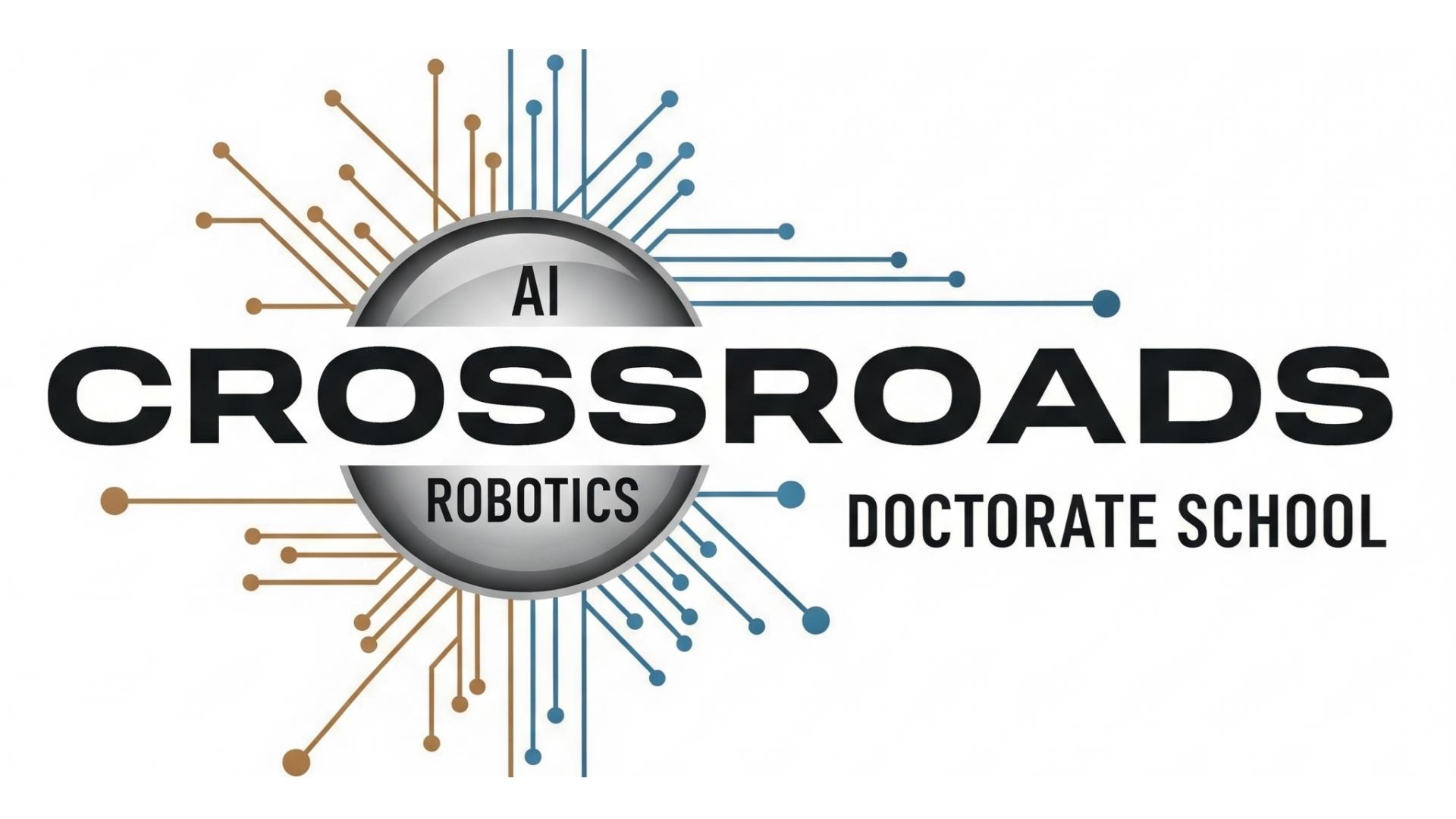
The CROSSROADS Doctorate Summer School took place from July 14 to 18, 2025, at the historic Villa Giustiniani-Cambiaso, home to the University of Genoa. The initiative was part of program P8 – Boosting PhD Students’ Career, coordinated by Spoke 5 of RAISE Liguria within the framework of the Training Program, and aimed to provide PhD students and early-career researchers with a high-level and strongly interdisciplinary learning opportunity.
The School, conceived by Giorgio Cannata, Valentina Di Gregorio, and Vice-Rector Laura Gaggero, stood out for its innovative and distinctive approach compared to similar programs. From the outset, the initiative sought to foster dialogue among PhD students from highly diverse backgrounds – from law to robotics, from computer science to the social sciences – with the goal of addressing, in an integrated and collaborative way, the pressing issues emerging from the development of robotics and artificial intelligence.
The Summer School was designed to promote deep exchange and co-learning on emerging topics related to AI and robotics, with a particular focus on their social, economic, legal, and ethical implications. In this context, dialogue across disciplines was encouraged to develop a systemic understanding of the challenges posed by the integration of intelligent technologies into society.
The educational program included lectures by nationally and internationally recognized experts, interactive group work sessions, and participant-led presentations. Activities were structured to stimulate active engagement and critical thinking, with strong grounding in real-world case studies, future scenarios, and concrete implications in key sectors such as healthcare, manufacturing, the environment, and civil society.
“This Summer School offers a unique experience in the European landscape: there are very few opportunities where students and PhD candidates can engage in a truly interdisciplinary way with complex topics such as robotics and artificial intelligence, combining legal, engineering, and scientific perspectives. Initiatives like this, which integrate law, technology, and ethical reflection, are essential for preparing the next generation to face the challenges posed by emerging technologies. It’s a virtuous model that deserves international recognition,” said Professor Aurelia Colombi Ciacchi, Professor of Law and Governance at the University of Groningen (Netherlands), who taught the module on Fundamental Rights Impact Assessments under the EU Artificial Intelligence Act at CROSSROADS.
Key topics covered during the week included the safety of robots and autonomous systems, technologies for digital health and personalized medicine, the regulation and governance of artificial intelligence, the reliability and explainability of intelligent systems, and the ethical and social implications of emerging technologies. Special attention was also given to bio-inspired applications of robotics and AI.
Primarily intended for PhD students in STEM (Science, Technology, Engineering, Mathematics) and ELSE (Economics, Law, Social Sciences, Ethics) fields, the School also welcomed scientists and professionals interested in exploring the intersection between technological innovation and society from an integrated, interdisciplinary perspective. The limited number of participants ensured a dynamic, stimulating, and highly interactive learning environment.
“The CROSSROADS Doctorate Summer School was born out of a desire to build a community of young PhD students and researchers from various disciplines. Artificial intelligence and robotics are evolving rapidly and becoming pervasive technologies, with fast-growing markets. It is therefore essential that these academic and scientific communities learn to collaborate to jointly address the emerging challenges — from data control and management to the safe use of robots. Only through a synergistic and integrated approach across all disciplines can we effectively tackle the critical issues that come with the accelerated development of these technologies,” said Professor Giorgio Cannata, faculty member at DIBRIS, University of Genoa.
Participation was free of charge, subject to registration through the dedicated portal, making the initiative both accessible and of great value for the advanced training of the next generation of researchers.

